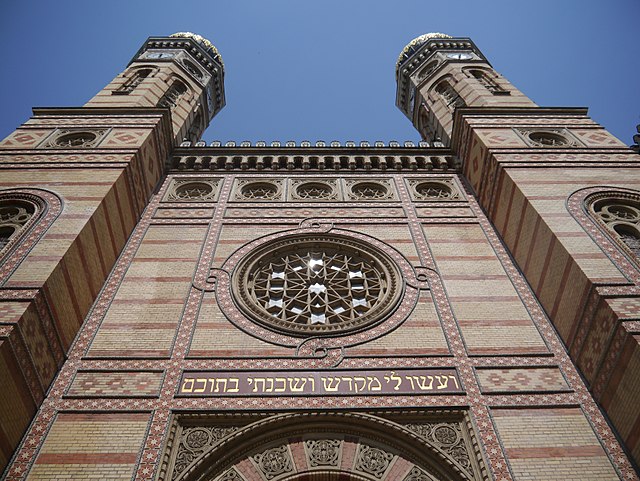Budapest University of Jewish Studies
The Budapest University of Jewish Studies is a university in Budapest, Hungary. It was opened in 1877, a few decades after the first European rabbinical seminaries had been built in Padua, Metz, Paris and Breslau. Still, it remains the oldest existing institution in the world where rabbis are graduated.
The Budapest University of Jewish Studies, formerly the Rabbinical Seminary.
The Seminary building in 1902.
Neologs are one of the two large communal organizations among Hungarian Jewry. Socially, the liberal and modernist Neologs had been more inclined toward integration into Hungarian society since the Era of Emancipation in the 19th century. This was their main feature, and they were largely the representative body of urban, assimilated middle- and upper-class Jews. Religiously, the Neolog rabbinate was influenced primarily by Zecharias Frankel's Positive-Historical School, from which Conservative Judaism evolved as well, although the formal rabbinical leadership had little sway over the largely assimilationist communal establishment and congregants. Their rift with the traditionalist and conservative Orthodox Jews was institutionalized following the 1868–1869 Hungarian Jewish Congress, and they became a de facto separate denomination. The Neologs remained organizationally independent in those territories ceded under the terms of the 1920 Treaty of Trianon, and are still the largest group among Hungary's Jews.

The Neolog Dohány Street Synagogue in Budapest, the largest synagogue in Europe.
Rabbi Leopold Löw.
The hall of the Szeged Synagogue.
Budapest University of Jewish Studies, 1902.





